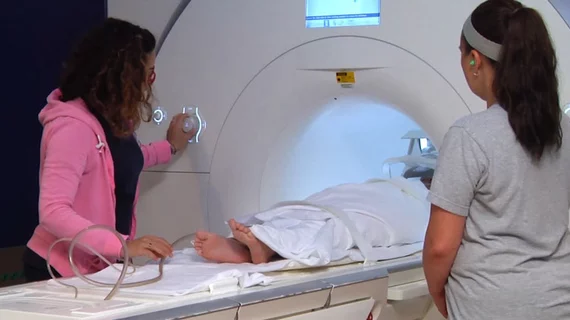Imaging research links obesity to poor brain health in children
Young children who are obese may face a heightened risk of poor brain health, according to new findings being presented Monday, Nov. 28, at RSNA 2022 in Chicago.
“We know being obese as an adult is associated with poor brain health,” researcher Simone Kaltenhauser, a post-graduate research fellow in radiology and biomedical imaging at Yale School of Medicine in New Haven, Connecticut, said in a prepared statement. “However, previous studies on children have often focused on small, specific study populations or single aspects of brain health.”
Kaltenhauser et al. examined data from the Adolescent Brain Cognitive Development (ABCD) study, which included nearly 12,000 children between the ages of 9 and 10 years old. Participants were enrolled at 21 centers throughout the United States; the ABCD study was designed to represent the country’s diverse population.
After making exclusions due to eating disorders, neurodevelopment and psychiatric diseases and traumatic brain injuries, the authors focused on data from more than 5,000 children. Approximately 52% of the children were female.
The authors examined each child’s BMI z-score, which calculates their relative weight after making adjustments for age, sex and height, and noted that 21% were overweight and 17.6% were obese. The group also examined structural MRI, resting-state functional MRI (fMRI), diffusion tensor imaging and restriction spectrum imaging results from each participant.
Overall, the imaging results revealed that children with higher weights and BMI z-scores were linked to structural brain changes such as impairment to the integrity of the white matter. Higher weights were also tied to decreased connectivity in the parts of the brain connected to cognitive control, motivation and reward-based decision making.
“Increased BMI and weight are not only associated with physical health consequences but also with brain health,” Kaltenhauser said. “Our study showed that higher weight and BMI z-scores in 9- and 10-year-olds were associated with changes in macrostructures, microstructures and functional connectivity that worsened brain health.”
“The longitudinal ABCD study gives us the opportunity to observe any changes that occur in children with higher weight and BMI z-scores,” added senior author Sam Payabvash, MD, an assistant professor of radiology and biomedical imaging with Yale School of Medicine. “We’ll need to watch over the next six to 10 years.”
Additional coverage of RSNA 2022 is available here and here.

